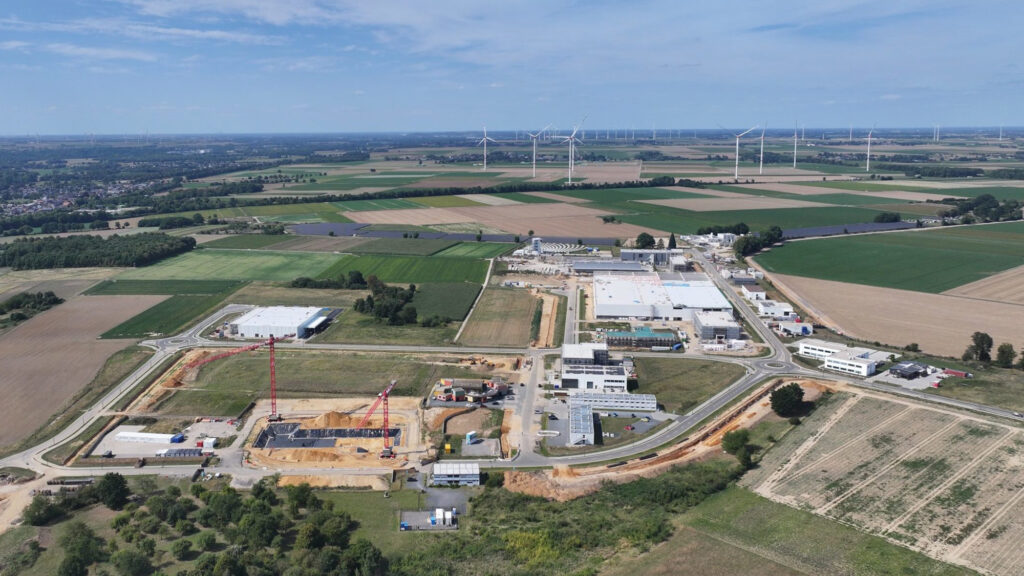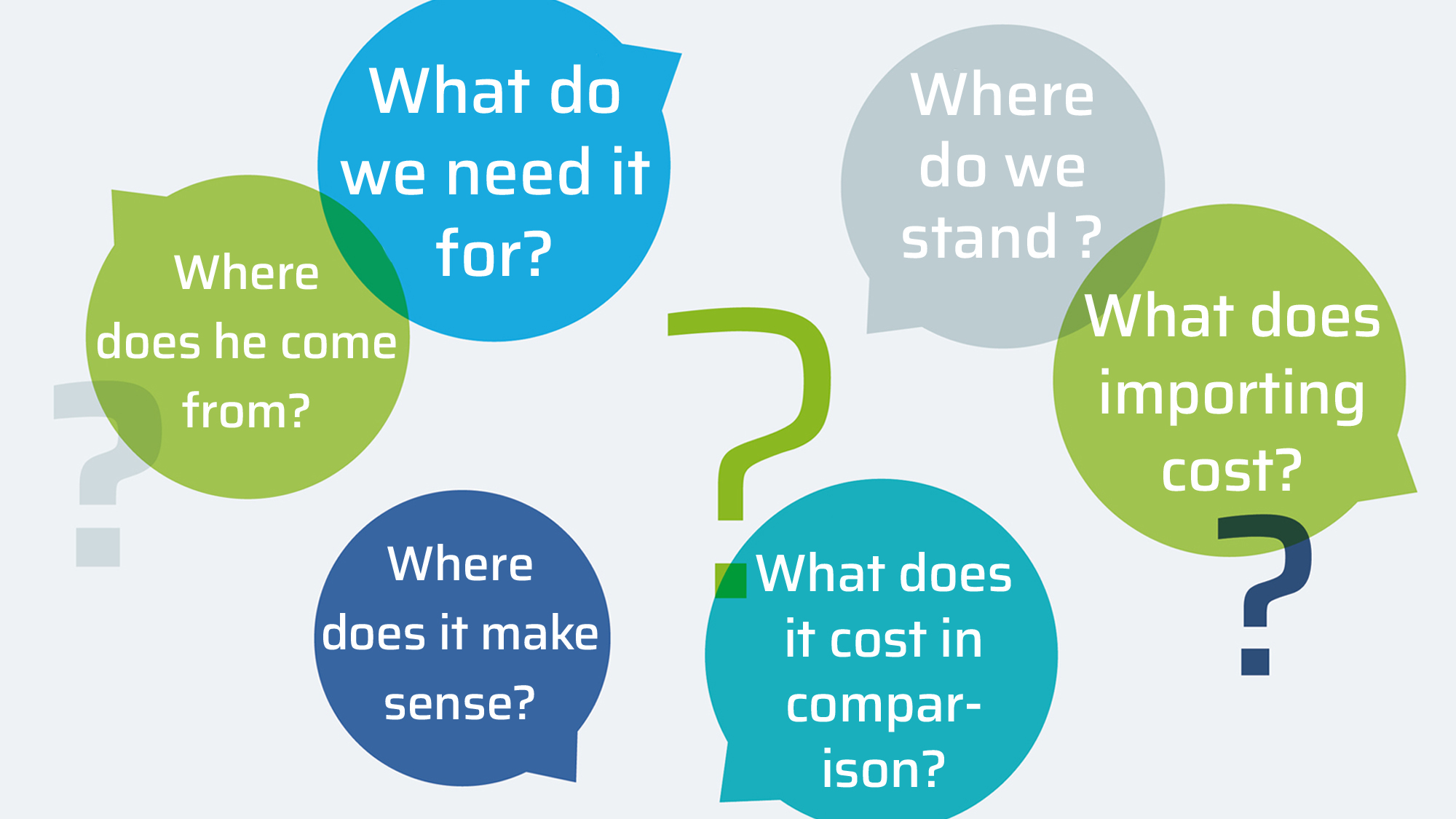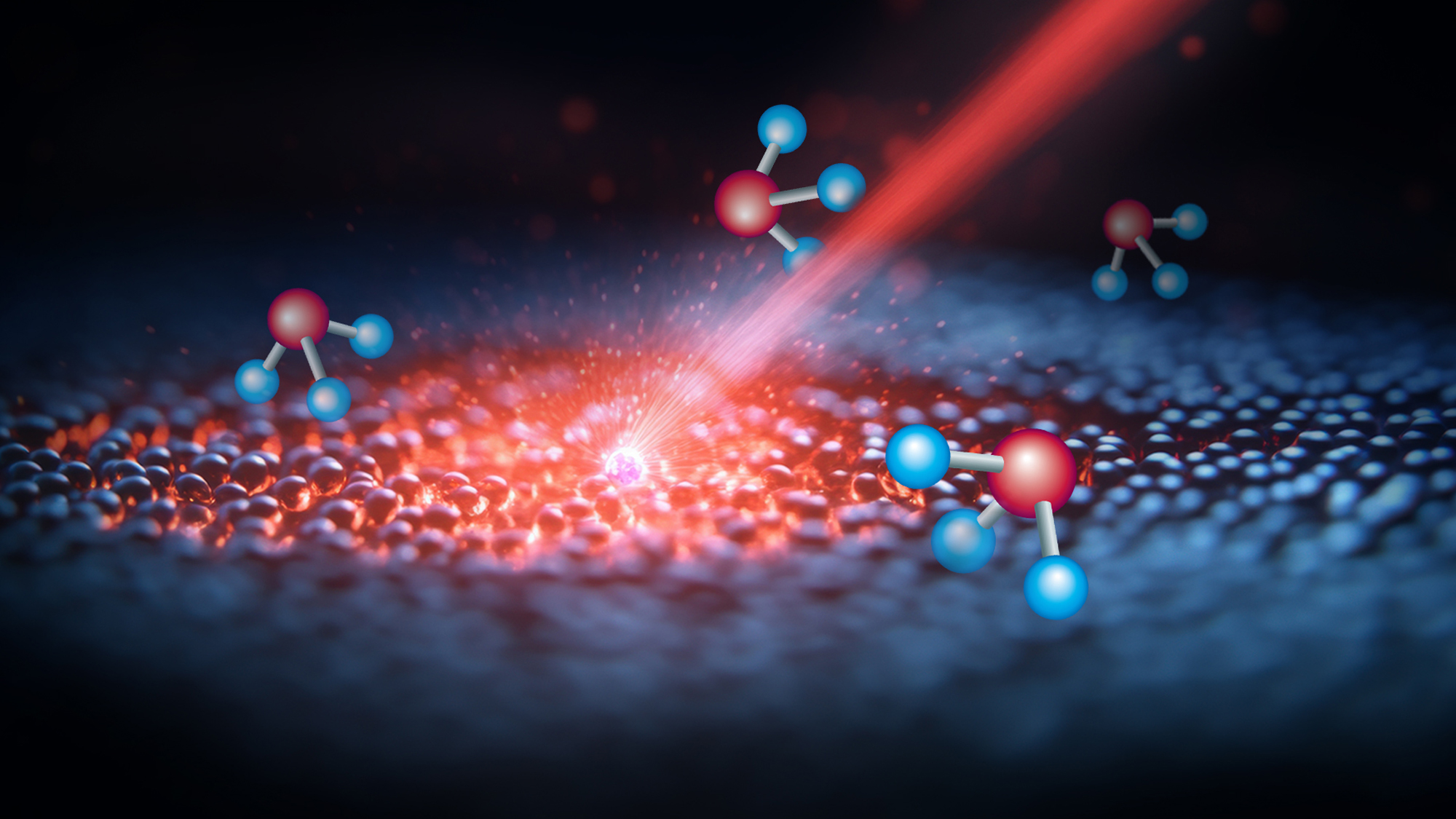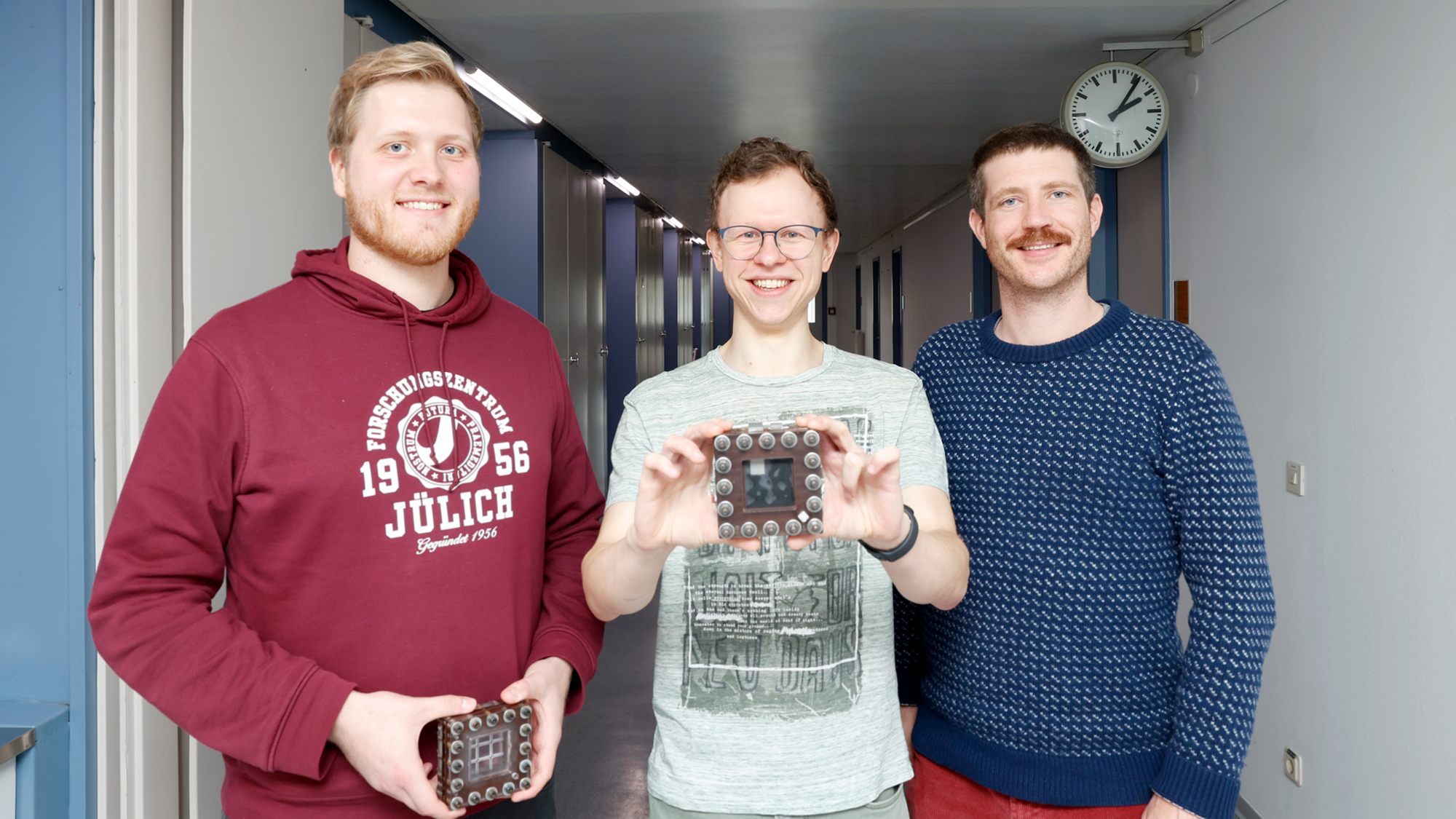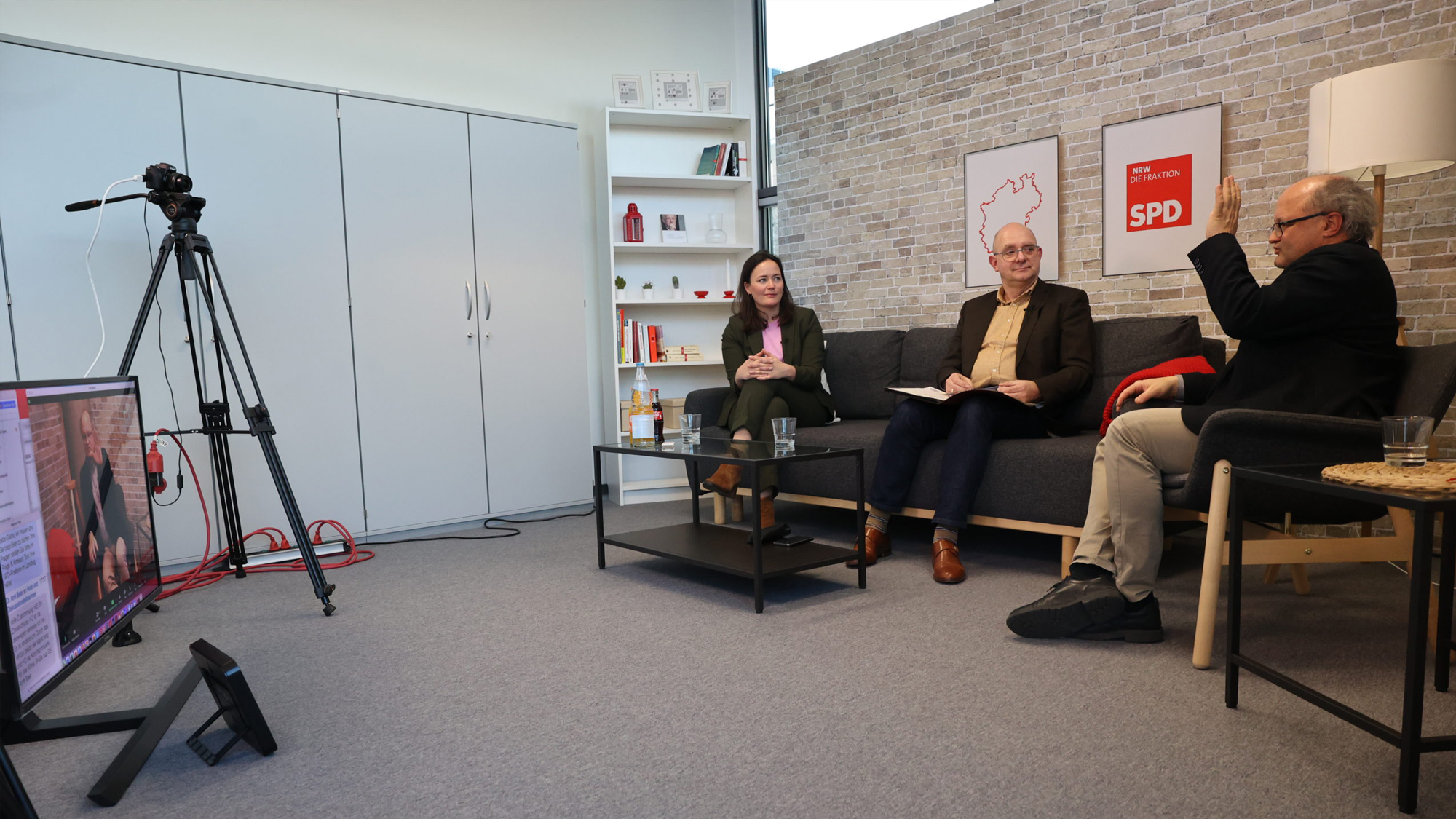The first stone has been laid for one of the most important structural change projects in the Rhineland mining region. North Rhine-Westphalia’s Minister President Hendrik Wüst signed the foundation stone for the Brainergy Hub before a crane lifted the round stone into the construction pit.
The Brainergy Hub is set to become the central building in the innovative Brainergy Park industrial estate north of Jülich from 2027 onwards. The Jülich Research Centre, with its Institute for Sustainable Hydrogen Economy (INW), is one of the first and largest neighbours there. The INW is responsible for the structural change project Helmholtz Cluster for Sustainable and Infrastructure-Compatible Hydrogen Economy (HC-H2).
“That is precisely here.”
The first spin-offs from the INW are currently in the process of setting up shop in Brainergy Park – in the so-called Startup Village, which has already been completed and is located right next to the hub’s construction site. It is located opposite the INW. The Startup Village is designed as a kind of incubator where newly founded companies can grow and later possibly move to the larger hub.
The Brainergy Hub will create around 300 jobs in a space covering almost 10,000 square metres. The sustainable building is intended for use by companies and research institutions working in the fields of sustainable energy and digitalisation. The state of North Rhine-Westphalia is providing €67.5 million in funding for the new building.
In his speech, Hendrik Wüst emphasised the importance and visibility of the location: “Right here in Jülich, the fastest computer in Europe is being built at the Jülich Research Centre: JUPITER. We have the scientific excellence to train artificial intelligence. It’s right here. This region is a driver of industrial value creation, and laying the foundation stone is a signal to the region and the entire country that we are seizing this opportunity.”
At the same time, Wüst praised the courage and vision of those involved in the structural change in the Rhineland mining region. Coal mining had been the cornerstone of prosperity for many decades. “It still is today. But it will not remain so. That is why it is good that this region has set out on a new path. This spirit of progress and courage to innovate are what characterise the region.”
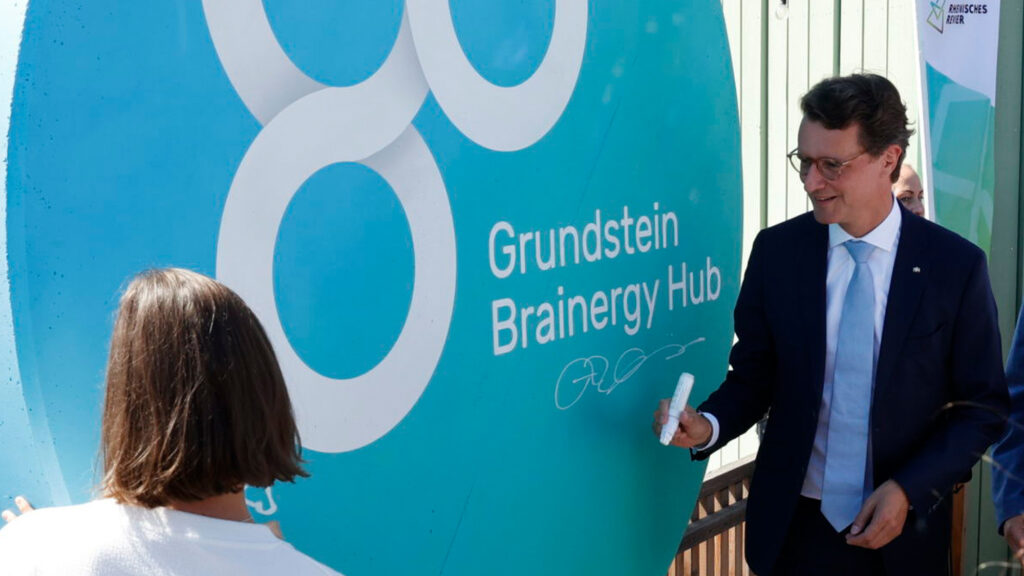
A building that builds bridges
Prof. Astrid Lambrecht, Chair of the Board of Directors at Forschungszentrum Jülich, explained the significance of the Brainergy Park – and especially the future central building – from her perspective: “The Brainergy Hub will play a very important role as a bridge builder between research and application.” She emphasised the great potential of the entire region, which she described as an “excellent research landscape” and which, with the Brainergy Hub, will be able to offer ideal conditions for spin-offs in the future.
Astrid Lambrecht also thanked the state and Minister President Hendrik Wüst for their support in connection with the JUPITER supercomputer, which will be officially inaugurated on 5 September. Hendrik Wüst is expected to return to Jülich on that date, as is Federal Chancellor Friedrich Merz.
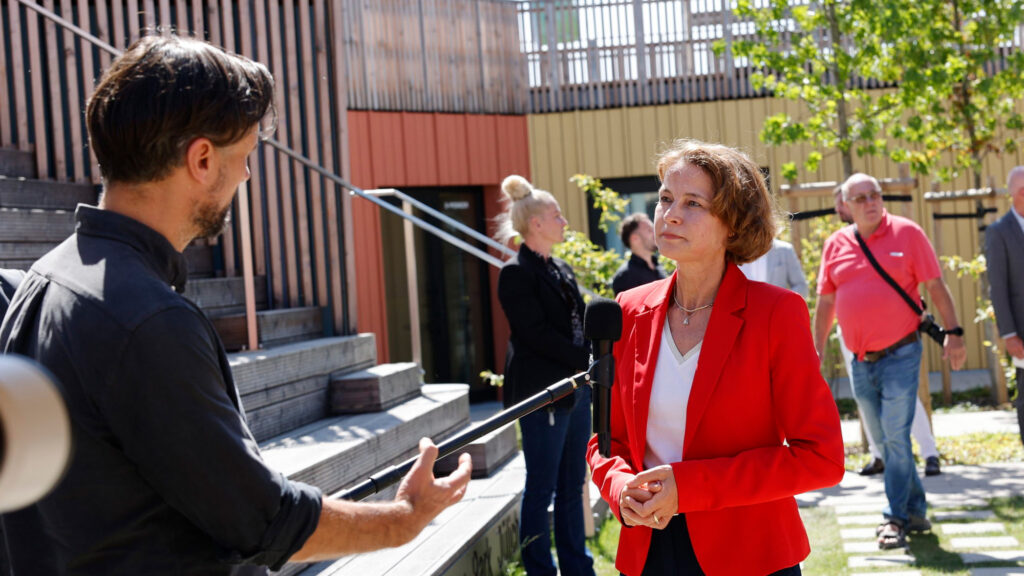
The copyright for the images used on this website is held by Forschungszentrum Jülich, aligator kommunikation GmbH and
stock.adobe.com.
